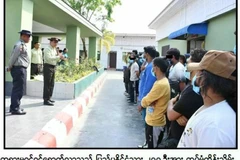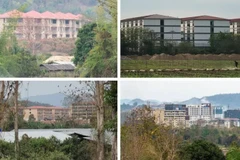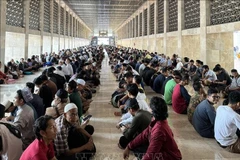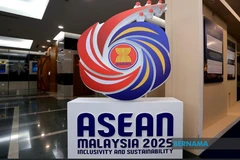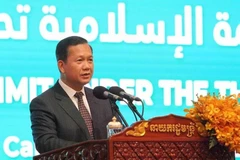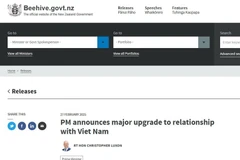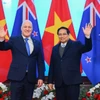The ASEAN Business Outlook Survey, the 13th of its kind, was conductedby the US Chamber of Commerce and the American Chamber of Commerce inSingapore (AmCham Singapore ) from May 5 to June 5.
According to the survey results, released in Singapore on August28, 74 percent reported that their companies’ level of trade andinvestment in ASEAN has increased over the past two years, and 89percent of respondents expect it to rise over the next five years.
Region-wide, respondents reported that Indonesia ,Vietnam and Myanmar are the priority markets for future businessexpansion, accounting for 41 percent, 37 percent and 35 percent,respectively.
The profit outlook is solidwith 63 percent of the executives expecting profit increases this year,and 81 per cent next year. As many as 53 percent of the respondentsexpect their companies’ workforce to expand this year, while only 5percent hope for decreases.
The vast majority(81 per cent) of surveyed business executives in all the 10 ASEANcountries believe that ASEAN integration is important in helping theircompanies do business in the region.
Thesurvey also revealed that US companies take advantage of regionaleconomic integration efforts, including ASEAN’s free trade agreements(FTAs) with Australia and New Zealand , China , India , Japan,and the Republic of Korea.
Nearly half (49 percent)reported that they use the FTAs to export goods from ASEAN to China .American companies’ use of the other FTAs ranges between 43-47 percent.
As many as 98 percent of respondents in the region said that theRegional Comprehensive Economic Partnership (RCEP) will either help orhave a neutral effect on their companies’ trade and investment in theregion.
Meanwhile, 51 percent thought that the Trans-PacificPartnership (TPP) agreement will help their companies’ trade andinvestment with Indonesia , Malaysia , Singapore , and Vietnam -the four ASEAN members participating in TPP negotiations.
“This survey substantiates what ASEAN-based executives of US companieswitness every day - ASEAN is a dynamic and forward-looking region withenormous growth potential, energetic populations, and exciting prospectsfor regional integration,” said AmCham Singapore Chairman JamesAndrade.
However, it also found substantialconcerns to companies’ growth in the region, including corruption,burdensome laws and regulations, lack of transparency, poor quality ofinfrastructure, and the difficulty in moving products through customs insome countries.-VNA
